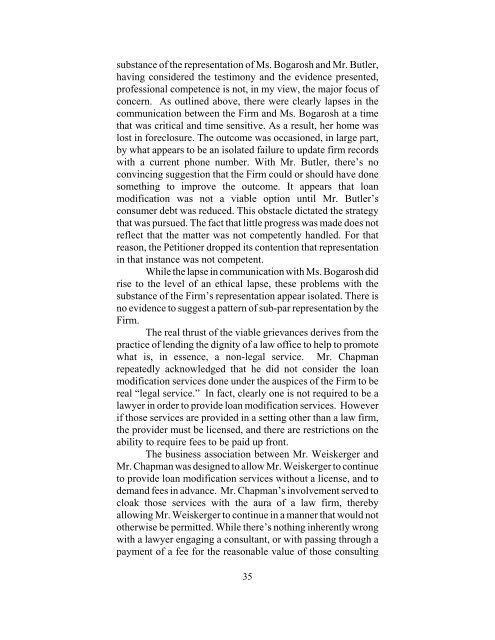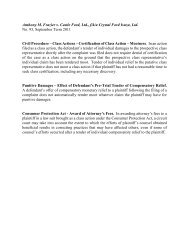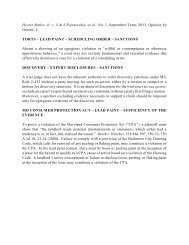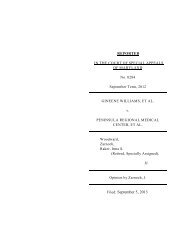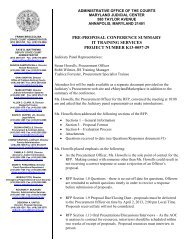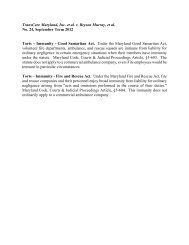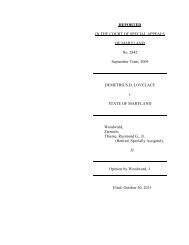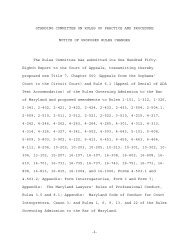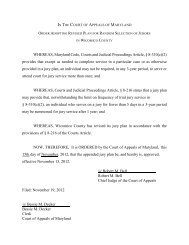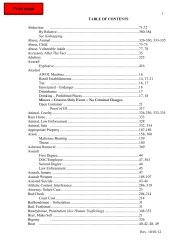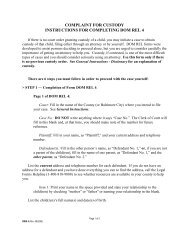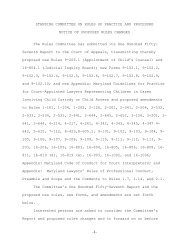44ag/11 - Maryland Courts
44ag/11 - Maryland Courts
44ag/11 - Maryland Courts
Create successful ePaper yourself
Turn your PDF publications into a flip-book with our unique Google optimized e-Paper software.
substance of the representation of Ms. Bogarosh and Mr. Butler,<br />
having considered the testimony and the evidence presented,<br />
professional competence is not, in my view, the major focus of<br />
concern. As outlined above, there were clearly lapses in the<br />
communication between the Firm and Ms. Bogarosh at a time<br />
that was critical and time sensitive. As a result, her home was<br />
lost in foreclosure. The outcome was occasioned, in large part,<br />
by what appears to be an isolated failure to update firm records<br />
with a current phone number. With Mr. Butler, there’s no<br />
convincing suggestion that the Firm could or should have done<br />
something to improve the outcome. It appears that loan<br />
modification was not a viable option until Mr. Butler’s<br />
consumer debt was reduced. This obstacle dictated the strategy<br />
that was pursued. The fact that little progress was made does not<br />
reflect that the matter was not competently handled. For that<br />
reason, the Petitioner dropped its contention that representation<br />
in that instance was not competent.<br />
While the lapse in communication with Ms. Bogarosh did<br />
rise to the level of an ethical lapse, these problems with the<br />
substance of the Firm’s representation appear isolated. There is<br />
no evidence to suggest a pattern of sub-par representation by the<br />
Firm.<br />
The real thrust of the viable grievances derives from the<br />
practice of lending the dignity of a law office to help to promote<br />
what is, in essence, a non-legal service. Mr. Chapman<br />
repeatedly acknowledged that he did not consider the loan<br />
modification services done under the auspices of the Firm to be<br />
real “legal service.” In fact, clearly one is not required to be a<br />
lawyer in order to provide loan modification services. However<br />
if those services are provided in a setting other than a law firm,<br />
the provider must be licensed, and there are restrictions on the<br />
ability to require fees to be paid up front.<br />
The business association between Mr. Weiskerger and<br />
Mr. Chapman was designed to allow Mr. Weiskerger to continue<br />
to provide loan modification services without a license, and to<br />
demand fees in advance. Mr. Chapman’s involvement served to<br />
cloak those services with the aura of a law firm, thereby<br />
allowing Mr. Weiskerger to continue in a manner that would not<br />
otherwise be permitted. While there’s nothing inherently wrong<br />
with a lawyer engaging a consultant, or with passing through a<br />
payment of a fee for the reasonable value of those consulting<br />
35


